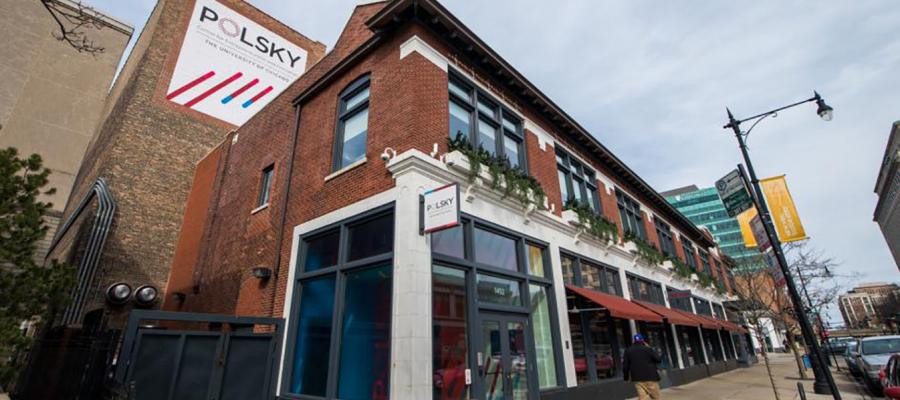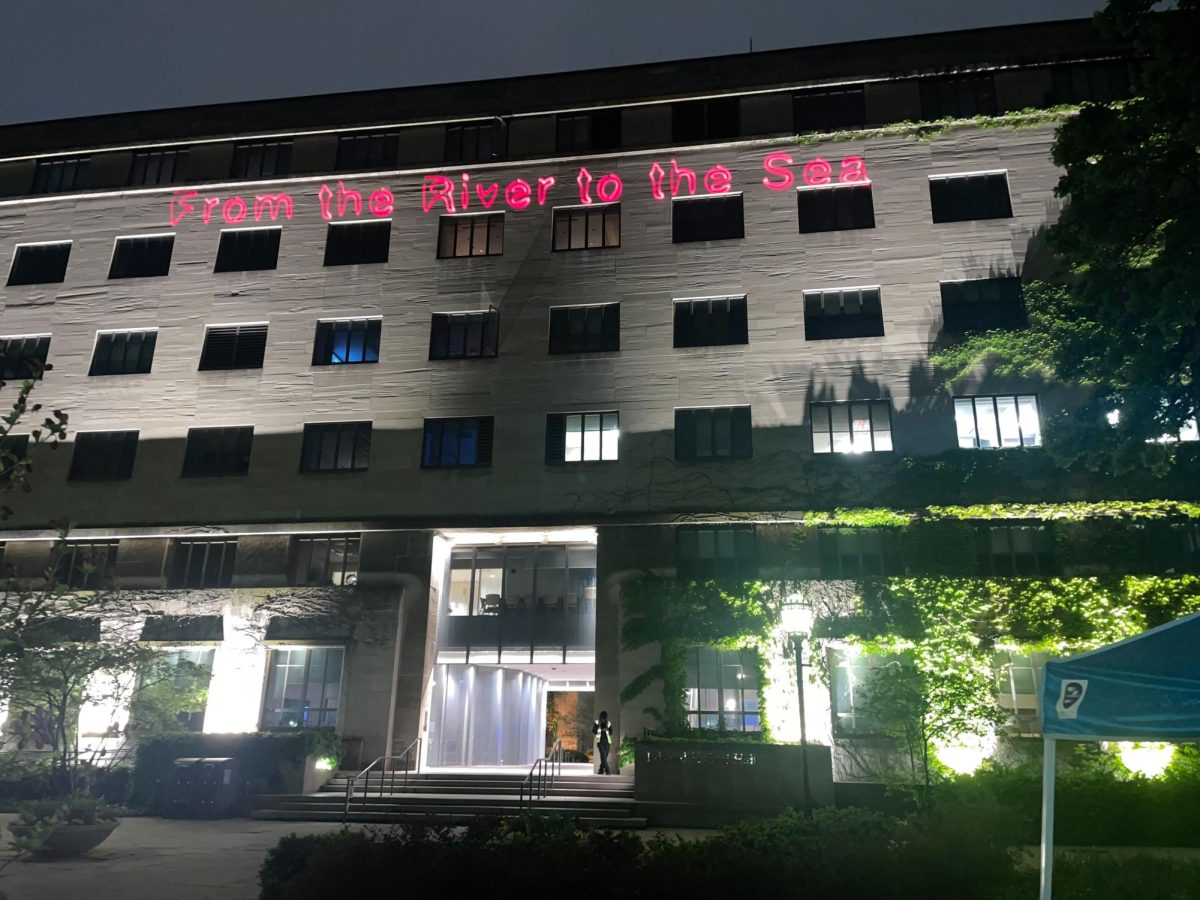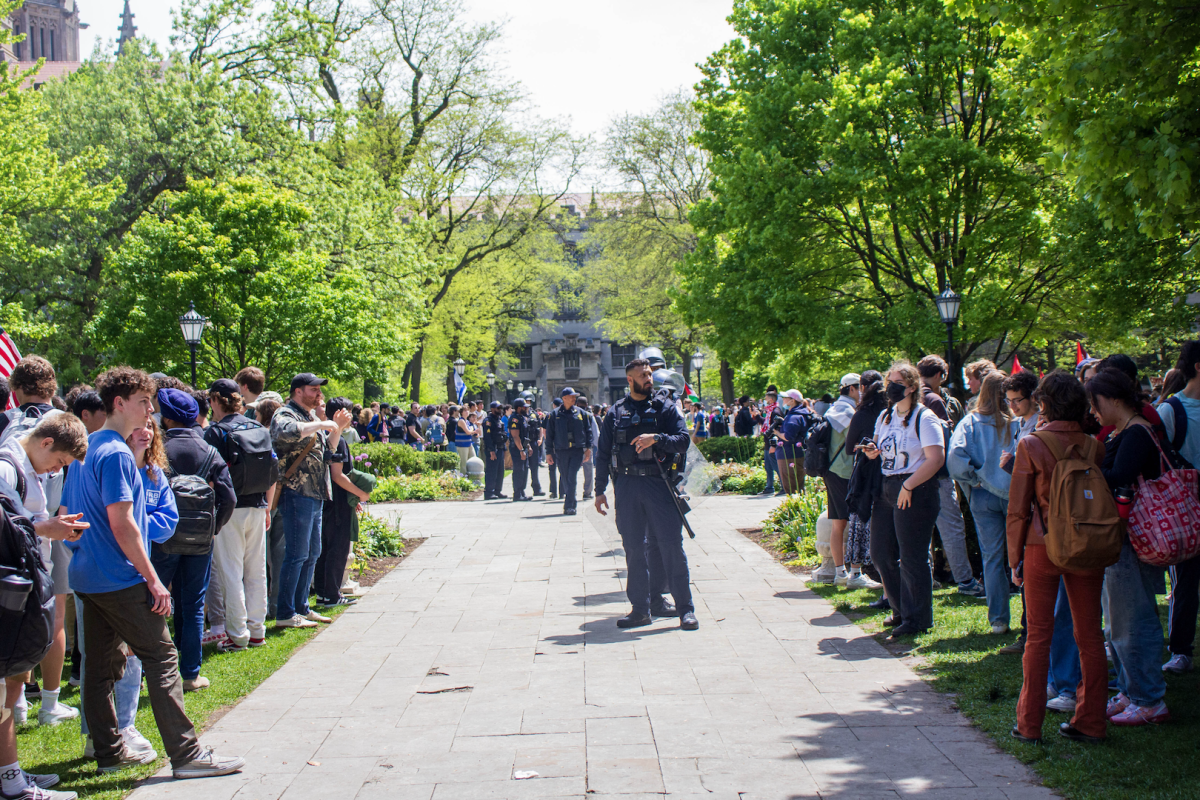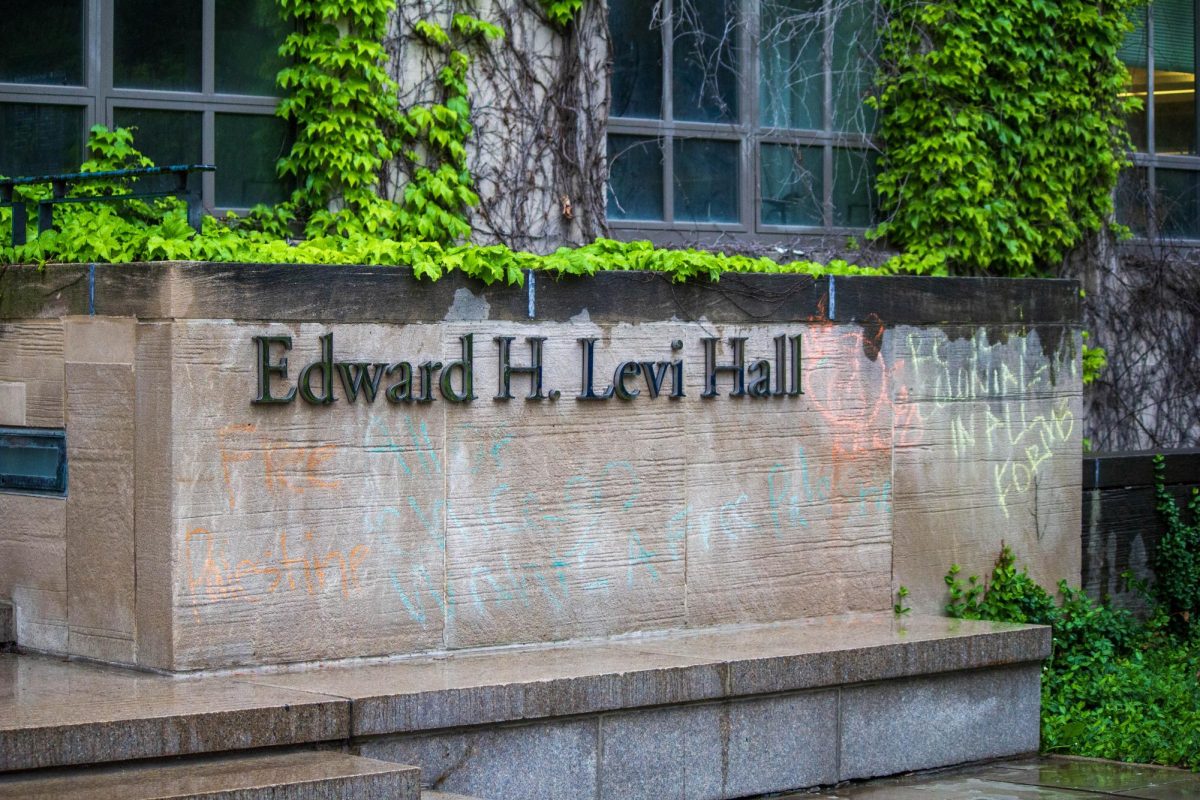Eight startups affiliated with UChicago’s Polsky Center for Entrepreneurship and Innovation have been included in innovation and tech website Chicago Inno’s “24 Startups to Watch in 2024” list. Now in its 10th year, Inno’s Startups to Watch list highlights the up-and-coming startups that have shown a readiness to tackle Chicago’s tech ecosystem.
Established at the Booth School of Business in 1998, the Polsky Center provides support for students interested in entrepreneurship and faculty inventors looking to commercialize their discoveries. The Maroon sat down with founders from three of the startups included on the list who are alums of the Polsky Deep Tech Ventures program: Jonathan Paul and Osman Ahmed of Flow Medical, John Sexton Abrams of Nūtrad, and Xiaoyang Wu of Alnair Therapeutics.
Flow Medical
Founded by University of Chicago researchers Jonathan Paul and Osman Ahmed, Flow Medical is developing a novel, multi-functional catheter to help diagnose and treat deep vein thrombosis (DVT).
“A big problem early on was that we were seeing DVT and pulmonary embolisms in patients that were infected with Covid-19,” Paul said. “We were talking to each other about the tools that we have available to us to treat this problem and asking: are we happy with the tools that we have that we can use to treat these patients?”
“We had started off by talking about what we could tell the big companies that make these devices—Boston Scientific, Medtronic, Abbott—about what they need to do to make a better device that would solve the problems we’ve addressed,” Paul continued. “After talking more about it, we finally said: well, why don’t we just do it?”
Both agreed that improvements could be made to the “one-size-fits-all” approach and thus set out to create a new standard of precise, personalized care. They devised a steerable monitoring catheter with a fiber-optic pressure sensor to improve lytic delivery and track clot resolution.
“Ultimately, we’re trying to take a procedure and modernize it to the way medicine is currently being practiced,” Ahmed said. “We’re trying to bring that to this treatment because the ramifications of giving too much or too little medication are very severe.”
While contemplating their various drawings and prototypes, the team recognized the need for external support to bring their vision to life. “We were good at using our hands, but we have no idea how to actually build devices,” Paul said. They explored various resources within the University and ultimately turned to the Polsky Center for partnership.
Through the Polsky Center, Paul and Ahmed identified a local medical technology design firm called Ontogen Medtech, which brought their design into the prototype stages. Alums of Polsky’s I-Corps program and Compass Deep Tech Accelerator, Flow Medical was also awarded a $200,000 co-investment from the George Shultz Innovation Fund to further develop the technology.
“They took us from zero to one, from having nothing to a functional prototype,” Paul said. “I think that’s where a lot of companies get stuck—how do you take the idea you have on paper and make it something you can actually hold? We were grateful to have both Polsky and Ontogen’s help to do that.”
Nūtrad
Nūtrad aims to simplify supply chain complexities by using AI to match disparate data between manufacturers and retailers. Their solution connects brands to their trade partners in real time, essentially eliminating third-party intermediaries and potentially costly human errors. Prior to founding Nūtrad last year, CEO John Sexton Abrams had worked extensively in strategic supply chain development at healthcare services company Cardinal Health and data management services company Syndigo.
Abrams’s experiences working in supply chain made him realize the challenges of setting up simple products for consumer sale. Most often, he was unable to get the information necessary from the product level.
“I looked at those things and said: we could automate that. So that led me to AI as a co-pilot approach to do things more effectively, with less cost. Instead of moving from clipboard to clipboard, you’re moving it digitally from [one] device to another device. You’re allowing that individual to manage a much broader array of information and do it more accurately at the product level,” continued Abrams.
As AI becoming increasingly integrated across industries, operational paradigms are being reshaped as companies seek efficiency gains. Abrams told the Maroon, “I don’t look at it as, ‘Let’s take people out of the loop.’ I look at it as, ‘How we can empower them?’ And we can find the right ways to do it.”
Though Abrams was not affiliated with the university, he found the Polsky Center through 1871, an independent innovation hub based out of Chicago. Nūtrad then went on to participate in the second cohort of Transform, a data science and AI accelerator run by Deep Tech Ventures.
“There are a couple of mentor moments that really stand out,” Abrams said. “I remember one whiteboarding session at Polsky where I was drawing the two sides of the equation on the board. I drew just a simple circle in the middle and wrote ‘AI’. He jumped out of his chair and said, ‘That’s it.’ It was a pivotal moment when we finally got down to the most simple, pedestrian view of what we do.”
Abrams emphasized the role of the mentorship program in his understanding of how they express the value of their company, which then led directly to their funding round. Nūtrad is now working in collaboration with Databricks to move from their original minimum viable product to deployment of their next round of products.
Alnair Therapeutics
Alnair Therapeutics is an oncology startup, developing a platform technology to improve the delivery of drugs to difficult-to-treat cancers. The genesis of the company lies in research conducted by Xiaoyang Wu, associate professor of cancer research and stem cell biology at the University.
The technology uses the unique features of cancer metabolism to enhance the targeting and penetration of drugs directly to cancer cells with the goal of improving treatment outcomes for patients.
“Tumor therapy is highly toxic,” Wu said. “It is a challenging process for the patient. In most cases, 99 percent of the [deployed] drug goes to normal cells and tissue, instead of going to the tumor. So what we’re trying to develop is a system where we can target the drug towards the tumor—like a missile—instead of shooting every cell.”
“One of the most established phenomena in cancer metabolism is to digest glucose to form lactate,” Wu said. “The lactate concentration depends on the tumor microenvironment but can be 10 or even 40 times higher than the normal lactate concentration. If we can take advantage of that signal, we can target the drug through a nanocarrier system.”
Alnair Therapeutics’s journey with Polsky has included its initial participation in the I-Corps program and later in the Compass Deep Tech Acceleratore, where it tested the viability of commercializing its research and developed the foundations of the startup. It is through these programs that Dr. Wu met his co-founders, Anh Nguyen, M.B.A. ’11 and Ryan Meyers, M.B.A. ’23.
“Sometimes it’s difficult to make the bridge,” Wu said. “We call it a ‘bench-to-bedside’ transition. We have to translate the technology from the lab to a clinical environment and ultimately make something beneficial for the patient. The transition, especially in biotech, has many hurdles between the initial scientific finds and going to market.”
While the biotech field is difficult to breach, Wu told the Maroon that the Polsky Center has played a major role in identifying the company’s potential and plotting a course forward.
“I think the ecosystem is highly challenging, but also exciting,” Wu said. “It’s a brand-new process for me—by involving me in the process, I am learning a lot from my co-founders on checking all the steps to make it happen. It’s about teamwork.”
In 2022, Alnair was awarded $175,000 through the George Shultz Innovation Fund. It went on to win the New Venture Challenge—one of the top-ranked accelerator programs in the nation—through which the startup received a $585,000 investment.
Founders from all three startups credited their transformative experiences to UChicago’s thriving venture ecosystem and commitment to entrepreneurial excellence. “The ecosystem of the University of Chicago is massive and fairly quiet. But the network Polsky has exposed us to has been tremendous,” Abrams said.








